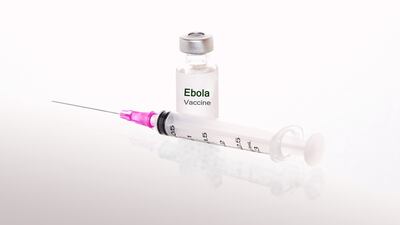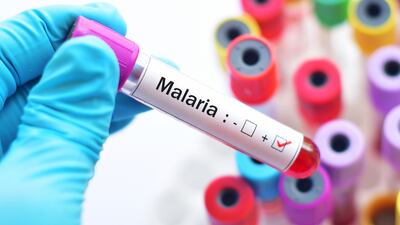Zambia
Swiss confections, food and nutritional products giant launches Nestlé Cerevita Instant Sour Porridge as affordable nutrition for consumers in Southeast Africa. With micronutrients often lacking in consumers’ diets there, it was developed in about one year by scientists at Nestlé's R&D center in Côte d'Ivoire.
Regulators have pulled out all the stops in their efforts to get the Ebola vaccine to the marketing authorization stage in Africa.
New funding has been provided for more trials of Novartis’s combination malaria treatment in west and central Africa, adding to ongoing efforts to tackle the disease on the continent.
An app for reporting adverse drug reactions developed by Europe’s Innovative Medicines Initiative is being tested in two African countries, where the mobile infrastructure is said to be more advanced than in EU. The app is expected to help in the collection of ADR data from malaria programs and from general medicines use.
Catalyst Principal continues east Africa health care investing; GOED MOU with US-China Health Products; class action against IntenseX dismissed; Prime Nutrition brand under Hi-Tech roof; and more news in brief.
Do you know how drug prices are set in Guam, Kiribati or Micronesia? Or whether countries like Bhutan, Papua New Guinea and Uzbekistan use external reference pricing (ERP)? If not, you're in good company. The World Health Organization and Health Action International have no idea either, and have asked people living in 39 countries around the world to let them know whether they operate any kind of drug pricing systems, and if so whether these include ERP.
Pakistan is the first country in South Asia to introduce a pneumococcal vaccine into its national immunisation programme, through support from the GAVI Alliance.
Cipla and the Drugs for Neglected Diseases initiative (DNDi) have announced a collaboration to develop a four-in-one antiretroviral (ARV) combination for HIV-infected children.
The Indian firm Glenmark will export generic oncology drugs to thirty countries around the world from its newly opened plant in the Pilar industrial park in Buenos Aires, Argentina.
Cipla has developed a ‘Mother-Baby Pack’ of antiretrovirals (ARVs) and antibiotics aimed at preventing the mother-to-child transmission of HIV/AIDS.
This week (20 - 22 September) in New York, while world leaders attend a UN high-level summit to help accelerate progress towards the Millennium Development Goals (MDGs), the body that represents the pharmaceutical industry around the world, the IFPMA, has reminded them that pharma does good deeds, too. However, some critics say the industry needs to do more.
Pfizer and the not-for-profit organisation Medicines for Malaria Venture (MMV) marked World Malaria Day (on 25 April) by signing an agreement to develop a fixed-dose combination product for the intermittent preventative treatment of Plasmodium falciparum malaria in pregnancy.
Daiichi Sankyo is planning to launch its antihypertensive olmesartan medoxomil in six African countries through the local operations of its Indian subsidiary Ranbaxy Laboratories.
Endo Pharmaceuticals' microbicide vaginal gel, PRO 2000 (naphthalene sulfonate polymer), intended for the prevention of HIV infection,has failed to show efficacy in a Phase III study involving more than 9,000 African women.
For the first time in 25 years, a new treatment for sleeping sickness has become available for countries in the developing world.
The prices of second-line treatments for HIV and tuberculosis in the developing world have been cut after an agreement was signed between the Clinton Foundation's HIV/AIDS Initiative (CHAI), Pfizerand Mylan.
UNICEF and Zambia are using mobile phone text messages to promote polio vaccination during the country's Child Health Week.
Bristol-Myers Squibb, which markets the triple HIV combination therapy Atripla (efavirenz, emtricitabine plus tenofovir), is giving $1.3 million in new grants to community-based HIV/AIDS programmes in Africa.
The Global Fund to Fight AIDS, Tuberculosis and Malaria has appointed Tedros Adhanom Ghebreyesus as board chair and Dr Ernest Loevinsohn as vice-chair. Tedros Adhanom Ghebreyesus Mr Ghebreyesus has been minister of health of Ethiopia since 2005. He served as chair of the Roll Back Malaria Partnership until May this year, and continues to head the UNAIDS programme co-ordination board. He has also held various roles in advisory groups such as the executive committee of the Partners in Population and Development and the GAVI Alliance. He succeeds Rajat Guptas, partner and former managing director of McKinsey & Company, as board chair. Dr Ernest Loevinsohn Vice-chair Dr Loevinsohn is director general of the Global Initiatives Directorate in the Canadian International Development Agency (CIDA). He was founding chair of the Global Stop TB Partnership, and continues to represent Canada, Germany and Switzerland on the board of the Global Fund. In his vice-chair role he replaces Elizabeth Mataka, executive director of the Zambia National AIDS Network. Both will chair their first board meeting in November.
Contributions to the Bill & Melinda Gates Foundation and Trust fell by 36% between 2007 and 2008, its annual report has revealed.
ADVERTISEMENT



